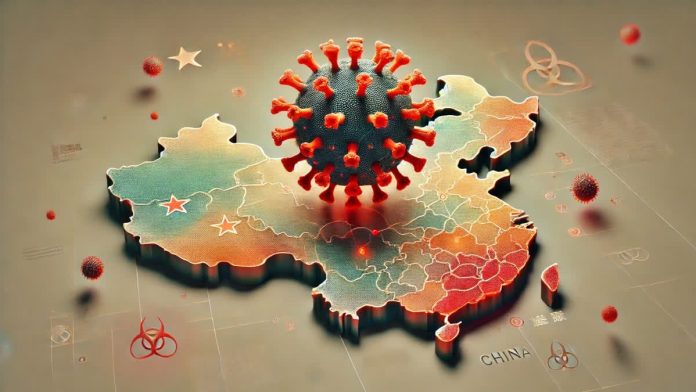China is witnessing a significant surge in cases of human metapneumovirus (HMPV), a respiratory infection, leading to growing public unease and pressure on healthcare systems.
The outbreak has been particularly severe in northern provinces, with children among the hardest hit. Hospitals in affected regions are overcrowded, prompting emergency measures to manage the influx of patients. This rise in HMPV infections comes five years after China faced global scrutiny for the emergence of the novel coronavirus in Wuhan, which triggered a worldwide pandemic.
Understanding Human Metapneumovirus (HMPV)
HMPV was first identified in 2001 in the Netherlands and has since become a globally recognized respiratory pathogen, particularly active during the winter months. The virus belongs to the Paramyxoviridae family, which also includes respiratory syncytial virus (RSV).
HMPV commonly causes symptoms resembling the flu or common cold, such as:
- Cough
- Fever
- Nasal congestion
- Shortness of breath
In severe cases, it can lead to complications like pneumonia and bronchiolitis, especially in vulnerable groups such as young children, the elderly, and individuals with weakened immune systems.
How HMPV Spreads and Its Treatment
HMPV is transmitted through respiratory droplets, often spread by coughing or sneezing. While most infections are mild and self-limiting, serious complications can occur in some cases. Currently, there is no specific antiviral treatment for HMPV. Management focuses on alleviating symptoms and supporting respiratory health.
Preventive measures, such as hand hygiene, wearing masks, and avoiding close contact with infected individuals, are essential to minimize the risk of transmission.
The Global Impact of HMPV
HMPV is not limited to China; it has been reported in various countries, including:
- United States
- Canada
- United Kingdom
- Germany
- Japan
- Australia
- South Africa
As the virus gains global attention, healthcare systems are bracing for its impact, particularly during peak seasons.
Steps Forward
In China, authorities are closely monitoring the situation and encouraging public adherence to preventive measures to curb the spread. Experts emphasize the importance of recognizing symptoms early and seeking medical attention for vulnerable individuals to prevent severe outcomes.











